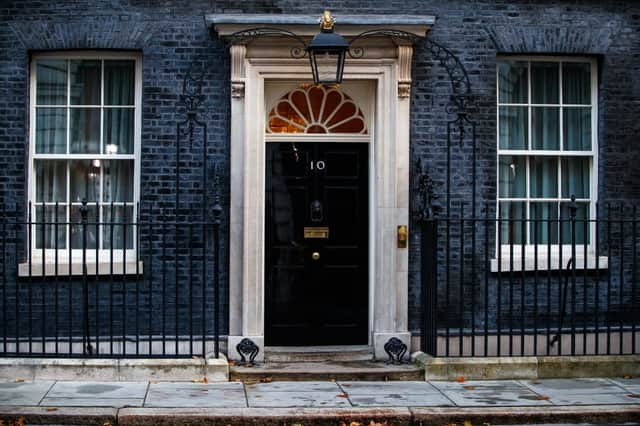The UK government’s plan to fight coronavirus explained


The government is set to announce its plan to fight the UK’s coronavirus outbreak.
The plan, which could involve school closures and bringing NHS staff out of retirement, would be put in place to contain the virus if it becomes more widespread.
Advertisement
Hide AdAdvertisement
Hide AdNew legislation would see the creation of a coronavirus “war room” in the Cabinet Office, and give authorities the power to cancel public events.
Health officials estimate that up to a fifth of the British workforce could be off sick at the peak of the coronavirus epidemic.
Health Secretary, Matt Hancock, said there was a “significant risk” of the virus spreading.
Speaking to BBC Breakfast, he warned, “There may be things that we have to do down the line that we may not want to, but we will need the powers to do that, hence proposing emergency legislation.”
The plan
Advertisement
Hide AdAdvertisement
Hide AdThe government’s planned response to Covid-19 covers the following areas:
The government hopes to detect the diseases’ early cases to prevent the disease taking hold in the UK “for as long as is reasonably possible”Officials aim to slow the spread with so-called “social distancing” strategies, aiming to lower the peak impact and delay it until the UK experiences warmer weatherThe government will fund research into actions that can lessen the effect of the virus on the population, and use the results to develop the “most effective models of care”It also plans to support hospitals to maintain essential services, to minimise the overall impact of the disease on “society, public services and on the economy”
Pressure on the NHS
In an effort to help the NHS survive, the sustained pressure that a coronavirus epidemic could cause, Downing Street will announce plans to re-register thousands of retired doctors and nurses.
Thirty different hospitals around the UK could set up designated coronavirus wards, with thousands of routine surgeries and treatments cancelled in the worst-case scenario envisioned by the plans.
Police and military response
Advertisement
Hide AdAdvertisement
Hide AdIf the outbreak becomes more widespread, government plans outline how police officers might be required to focus on only the most serious of crimes - as well as maintaining public order.
Ministers also have the power to use the military to support the emergency services if necessary.
Schools may also be closed during the outbreak, with large public events - like the London Marathon - cancelled, and many people forced to work from home.
Coronavirus facts
What is coronavirus?COVID-19 is a respiratory illness that can affect lungs and airways. It is caused by a virus called coronavirus.
Advertisement
Hide AdAdvertisement
Hide AdWhat caused coronavirus?The outbreak started in Wuhan in China in December 2019 and it is thought that the virus, like others of its kind, has come from animals.
How is it spread?As this is such a new illness, experts still aren’t sure how it is spread. But.similar viruses are spread in cough droplets. Therefore covering your nose and mouth when sneezing and coughing, and disposing of used tissues straight away is advised. Viruses like coronavirus cannot live outside the body for very long.
What are the symptoms?The NHS states that the symptoms are: a dry cough, high temperature and shortness of breath - but these symptoms do not necessarily mean you have the illness. Look out for flu-like symptoms, such as aches and pains, nasal congestion, runny nose and a sore throat. It’s important to remember that some people may become infected but won’t develop any symptoms or feel unwell.
What precautions can be taken?Washing your hands with soap and water thoroughly. The NHS also advises to cover your mouth and nose with a tissue or your sleeve (not your hands) when you cough or sneeze; put used tissues in the bin immediately and try to avoid close contact with people who are unwell. Also avoiding touching eyes, nose and mouth unless your hands are clean.
Advertisement
Hide AdAdvertisement
Hide AdShould I avoid public places?Most people who feel well can continue to go to work, school and public places and should only stay at home and self isolate if advised by a medical professional or the coronavirus service.
What should I do if I feel unwell?Don’t go to your GP but instead call NHS 111 or look online at the coronavirus service that can tell you if you need medical help and what to do next.
When to call NHS 111NHS 111 should be used if you feel unwell with coronavirus symptoms, have been in a country with a high risk of coronavirus in the last 14 days or if you have been in close contact with someone with the virus.
Sources: World Health Organisation and NHS